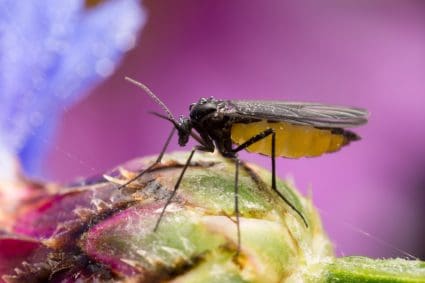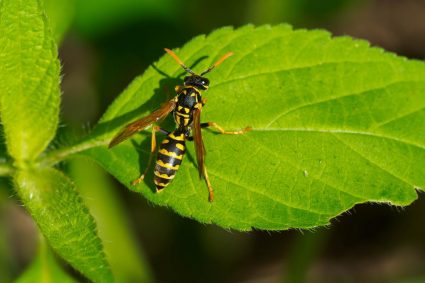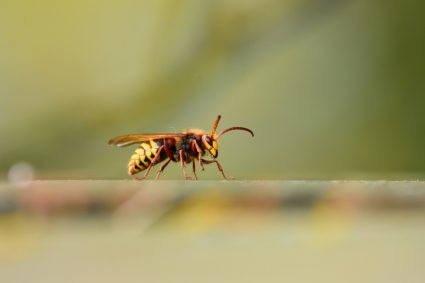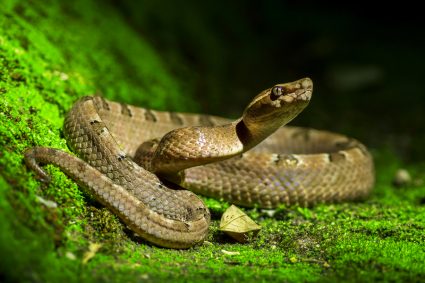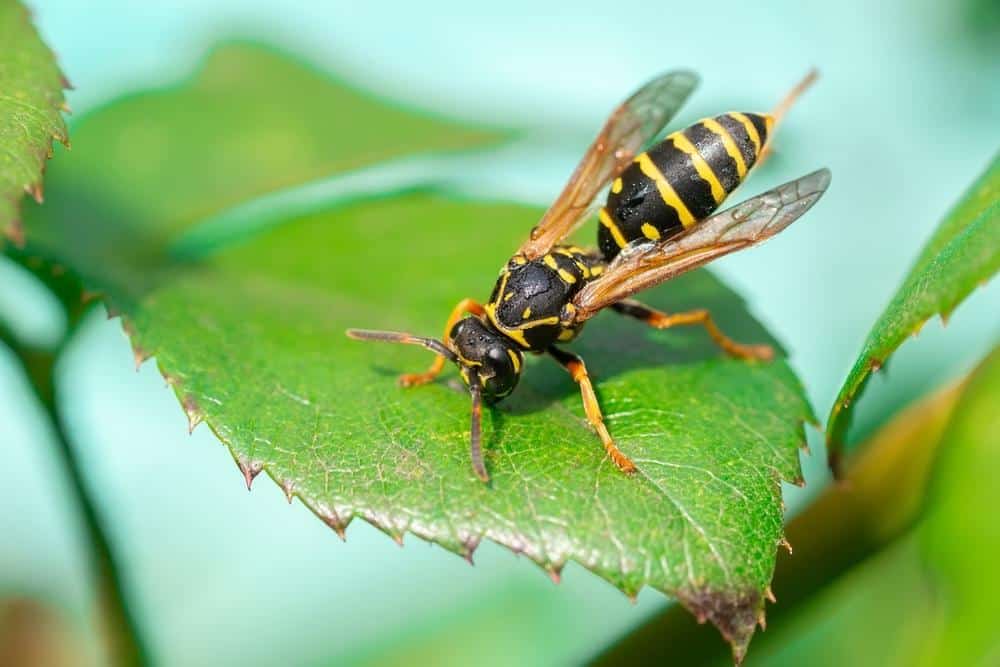
Wasp spray is a common solution for dealing with pesky wasps in gardens, yards, and homes. But, have you ever wondered, “Does wasp spray kill grass?” This comprehensive blog post will delve into the effects of wasp spray on grass, the ingredients that may cause harm, and safe alternatives for dealing with wasps.
Yes, wasp spray can potentially harm or even kill grass. The active ingredients in many wasp sprays, such as pyrethroids, can have toxic effects on plants for hours, days, or even weeks after application. These chemicals can affect photosynthesis, cause burns to the plants’ foliage, slow plant growth, and in extreme cases, kill the plant. It’s advisable to use safe alternatives to deal with wasps that won’t harm your grass.
The Impact of Wasp Spray on Grass
Wasp spray can potentially harm grass and other plants, depending on the active ingredients in the spray. When sprayed directly on the grass, immediate effects may include damage or even killing the grass and plants. Long-term effects are less clear, but some insecticides, such as permethrin, can persist on plant leaves for 1 to 3 weeks.
Pyrethroid-based wasp sprays, common in many commercial products, are not safe for plants. Pyrethroids are chemically similar to pyrethrins, which are derived from chrysanthemum flowers, but they break down more slowly in the environment and can have toxic effects on plants for hours, days, or even weeks after application.
Harmful Components in Wasp Spray
Most wasp sprays contain pyrethrin or pyrethroids as their primary ingredient, which can be toxic to plants. They tend to break down slowly in the ecosystem and can have negative effects on your garden, such as affecting photosynthesis performance, causing burns to the plants’ foliage, and decelerating plant growth. In extreme cases, it may even kill the plant.
Safe Alternatives to Wasp Spray
Luckily, there are several safe alternatives to wasp spray that won’t harm grass but can effectively deal with wasps.
- Lemon extract: Mix 3 tablespoons of lemon extract with 1 cup of water and add it to a spray bottle. This solution can be used as an effective wasp killer and repellent.
- Liquid dish soap: Combine water and a quarter cup of liquid dish soap in a spray bottle. Dish soap works to kill wasps by allowing water to enter their breathing tubes, causing them to suffocate.
- Natural wasp traps: DIY wasp traps can be made using a mixture of vinegar, sugar, and water. Place the mixture near the nest to attract and kill wasps.
- Essential oils: Some essential oils, such as clove, geranium, lemongrass, and peppermint oil, can repel wasps. Mix a few drops of these oils with water and spray the mixture around your yard to deter wasps.
- Wasp repellent plants: Certain plants, like spearmint, thyme, eucalyptus, wormwood, basil, bay leaves, lemongrass, and citronella grass, can act as natural wasp repellents. Plant these varieties near your home and in areas where you have previously seen wasps.
Preventing the Need for Wasp Spray
Homeowners can prevent the need for using wasp spray and protect their grass by implementing various strategies to repel and deter wasps from nesting in their property. Planting wasp-repellent plants, using essential oil blends, hanging fake wasp nests, removing attractants, and sealing openings and cracks are all effective methods.
Environmental Implications
Wasp sprays can have negative environmental implications when used in gardens and lawns. These chemicals tend to break down slowly in the environment, which can lead to long-term negative effects. Using wasp sprays can also eliminate important insects for the ecosystem, as they contain harsh and toxic chemicals that can be damaging to plants and other organisms.
Conclusion
While wasp spray can be an effective way to rid your yard of these stinging insects, it’s important to consider the potential effects on your grass and surrounding plants. By using safer alternatives and implementing preventive measures, you can protect your yard from both wasps and potential damage from harmful sprays. Remember, when dealing with wasps, always prioritize safety and consider consulting a professional if the infestation is severe.
Frequently Asked Questions
What are pyrethroids and pyrethrins?
Pyrethroids are synthetic chemicals that act like natural extracts from the chrysanthemum flower. Pyrethrins are natural pesticides made from the extract of chrysanthemum flowers. Both are commonly used in insecticides.
Is there a specific time of day that is best for applying these wasp deterrents?
Yes, the best time to apply these deterrents is in the early morning or late evening when wasps are less active.
Can I use these alternatives for other insects as well?
Yes, many of these alternatives, such as the essential oil blends and dish soap solution, can be effective against a variety of insects, not just wasps.
What should I do if I’m allergic to wasps?
If you’re allergic to wasps, it’s best to avoid dealing with them yourself. Contact a professional pest control service to handle the situation safely.
How often should I apply these natural deterrents?
The frequency of application can depend on the severity of the wasp problem. However, as a general rule, reapplication every few days or after significant rainfall should be sufficient.





